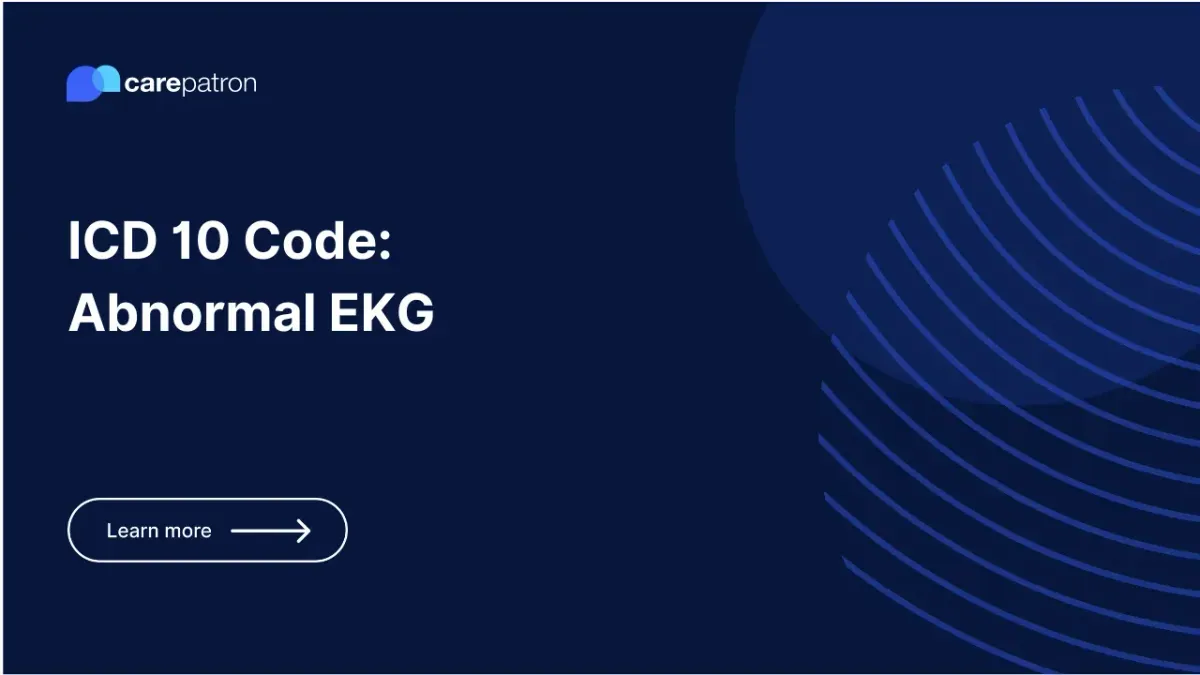
Abnormal EKG ICD-10-CM Codes
Check out our short guide on the ICD-10 code used for abnormal EKG to know more about the code's clinical description, billability, synonyms, and more.
Use Code
Commonly asked questions
The ICD-10 code for an abnormal EKG (R94.31) is used when a patient's electrocardiogram shows irregular results that differ from the normal range. This code is typically assigned after a healthcare provider gives an EKG interpretation and identifies abnormal patterns, but before a specific diagnosis (like arrhythmia or acute myocardial infarction) is confirmed. It’s often used during initial assessments, routine exams, or when a patient reports symptoms such as chest pain or palpitations.
Yes, R94.31: Abnormal electrocardiogram [ECG] [EKG] is a billable code. It is important that the diagnosis is included in the patient's medical record to avail reimbursement for medical services.
How an abnormal EKG is treated depends on what’s causing it. If the doctor believes it's just a harmless variation in heart rhythm, no treatment might be necessary. If a medication is triggering the irregular results, they may suggest switching to a different drug.
EHR and practice management software
Get started for free
*No credit card required
Free
$0/usd
Unlimited clients
Telehealth
1GB of storage
Client portal text
Automated billing and online payments
